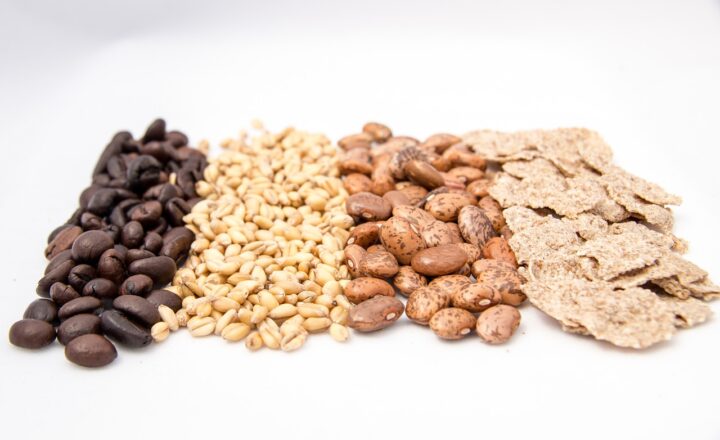The Essential Nutrients Every Muscle-Building Diet Should Include
November 14, 2024

When it comes to building muscle, nutrition plays an equally important role as resistance training. Your body requires specific nutrients to repair tissues, build new muscle fibers, and recover from strenuous workouts. Understanding the essential nutrients needed for a muscle-building diet not only helps optimize performance in the gym but also promotes overall health and wellbeing.
1. Protein: The Building Block of Muscle
Protein is undoubtedly the most critical nutrient for muscle growth. It provides the amino acids necessary for muscle repair and growth following exercise. Without sufficient protein intake, your body cannot efficiently build new muscle tissues. The general recommendation for protein intake for muscle building is around 1.6-2.2 grams of protein per kilogram of body weight per day.
Best Sources of Protein:
- Chicken breast
- Turkey
- Grass-fed beef
- Fish such as salmon and tuna
- Eggs and dairy products like Greek yogurt & cottage cheese
- Plant-based sources like lentils, chickpeas, and quinoa
Consuming protein-rich meals and snacks throughout the day helps maximize muscle protein synthesis. Incorporating a source of protein in each meal and post-workout shake is ideal for muscle recoveries, such as whey protein for quick absorption after a workout.
2. Carbohydrates: Energy for Intense Workouts
Carbohydrates are vital for muscle building as they provide the energy needed to perform rigorous exercises. Consuming an adequate amount of carbohydrates also helps replenish glycogen stores depleted during workouts, preventing muscle fatigue.
Best Sources of Carbohydrates:
- Whole grains like brown rice, quinoa, and oats
- Starchy vegetables such as sweet potatoes and corn
- Fruits, especially bananas, berries, and apples
- Legumes including beans, lentils, and peas
The type of carbohydrates consumed matters as well. Focus on whole, unprocessed sources that release energy slowly, thus providing a sustained source of fuel. Timing your carbohydrate intake—before and after workouts—can further improve performance and recovery.
3. Healthy Fats: Supporting Hormonal Balance
Healthy fats are vital for muscle-building diets as they assist in hormone production, including testosterone, which is crucial for building muscle mass. Fat also provides a concentrated source of energy and promotes nutrient absorption.
Best Sources of Healthy Fats:
- Avocados
- Nuts (e.g., almonds, walnuts) and seeds (e.g., flaxseeds, chia seeds)
- Olive oil and coconut oil
- Fatty fish, such as mackerel and salmon
Incorporating moderate amounts of healthy fats into your diet promotes overall health and supports the energy needed during intense training sessions. About 20-35% of total caloric intake should come from healthy fats.
4. Vitamins and Minerals: Micronutrients Matter
While macronutrients are essential, vitamins and minerals are equally crucial for muscle building. They aid in energy metabolism, muscle contraction, and reducing oxidative stress. Some key micronutrients include:
- Vitamin D: Supports muscle function and strength, often obtained from sunlight exposure and foods like fatty fish.
- Calcium: Important for muscle contraction, found in dairy products, leafy greens, and fortified foods.
- Iron: Supports oxygen transport in the blood, sourced from red meat, beans, and spinach.
- Magnesium: Involved in muscle contractions and recovery, present in nuts, seeds, and whole grains.
To ensure a well-rounded intake of vitamins and minerals, eat a variety of colorful fruits and vegetables, along with whole foods.
5. Hydration: Don’t Forget the Water
Hydration is often overlooked when it comes to nutrition, but it plays a crucial role in muscle function and recovery. Dehydration can impair strength, reduce endurance, and affect overall performance.
Ensure you consume enough water throughout the day, and pay special attention to hydration before, during, and after workouts. In cases of intense training, consider using electrolyte drinks to replenish essential minerals lost through sweat.
6. Meal Timing and Frequency: More than Just What You Eat
In addition to focusing on what to eat for muscle building, how and when you eat also matters. Spreading protein intake across multiple meals (4-6 meals a day) has been shown to enhance muscle protein synthesis. Incorporate nutrient-rich snacks post-workout to enhance recovery, such as a combination of protein and carbohydrates.
Additionally, avoid long gaps without food, as it can lead to muscle degradation, especially during periods of intense training.
Conclusion
To build muscle effectively, a balanced approach to nutrition is essential. Prioritizing protein, carbohydrates, healthy fats, and vital micronutrients while maintaining proper hydration and meal timing can provide your body with the tools it needs to grow and recover. Every individual has unique nutritional needs depending on their workout intensity, body type, and goals, so consider consulting with a nutritionist or dietitian to tailor your diet for optimal muscle growth.
With the right nutrients fueling your efforts in the gym, you will be on the path to achieving your strength and muscle-building goals in no time!






